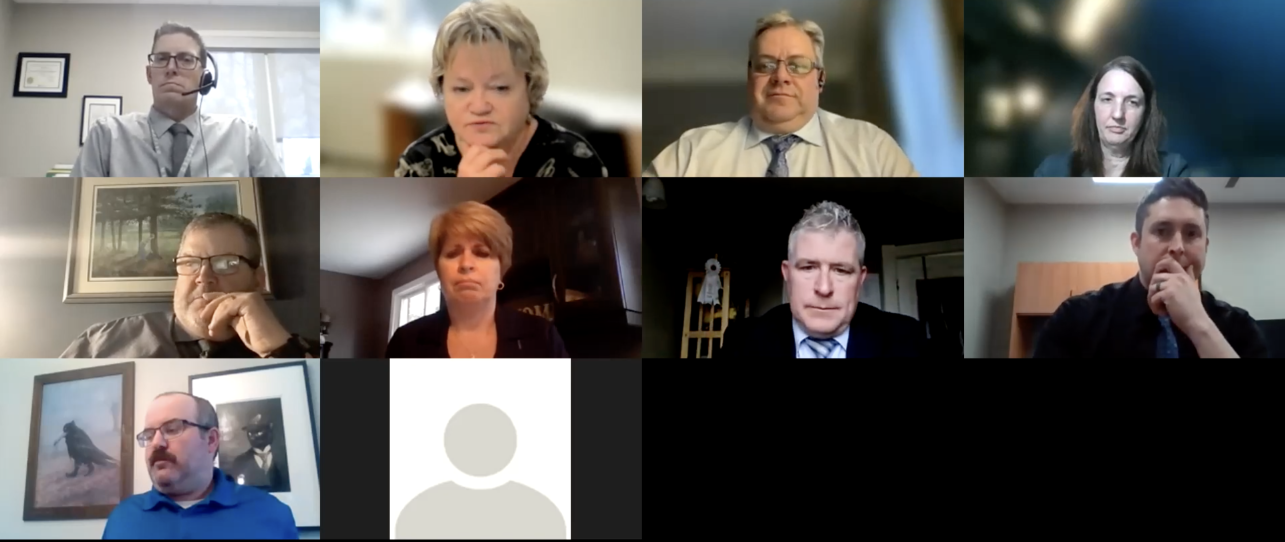WELLINGTON NORTH – There was much discussion of ripping Bandaids off at the April 11 meeting of council.
The township’s sewage allocation policy – one mitigating growth by restricting the amount of units council can award to developers annually – divided council during an hour-long discussion about how to award units needed by Cachet Developments.
The developer of a major single detached and townhouse subdivision in Arthur, Cachet was staring down a years-long process to acquire the 197 sewage units necessary for completion of the Preston Street development, thanks to the throttled allocation policy.
Staff recommended council award the developer 59 additional units this year, or 15 per cent of the Arthur Wastewater Treatment Plant’s uncommitted 391-unit reserve capacity.
Considering the 39 units awarded last year, that would leave 99 units left to be awarded over several years.
Councillor Steve McCabe asked if there was an appetite to open up additional allocations for Cachet, questioning the merit of holding the subdivision back with policy.
Cachet vice president Ramsey Shaheen said all of the outstanding allocations would need to be awarded between now and April 2023 for the developer to meet its goal of nearing completion of construction by the springtime of 2024.
Amended-Draft-Plan-2022
Shaheen said Cachet wanted more than the 59 unit allocation recommended, and said the developer believed the township’s 15% of reserve calculation was “arbitrary” — a point CAO Mike Givens later admitted to in the meeting, saying the calculation wasn’t evidence-based.
“Construction is like a Bandaid: you can kind of remove it slowly and painfully, or you can rip it off and be done with it as quickly as we can,” Shaheen said.
Councillor Dan Yake said the discussion should have taken place half a year ago, not at the eleventh hour.
“Councillor, we’ve been having the discussions over the past year with respect to this policy,” Shaheen responded, in part.
The VP explained he was prepared to ask for an exception to the policy last April, but felt the timing wasn’t right based on a number of factors, including the advice of township staff.
“We’re trying to balance controlling the rate of growth for good reasons for our community and at the same time trying to minimize disruption … I’m sure we’re going to face more questions like this in the future,” Mayor Andy Lennox said.
Councillor McCabe moved a motion to amend Cachet’s 2022 allotment to 80 total units, up by 21 units from the 59 recommended by staff.
“I think if we’re going to amend it … we might as well give ‘em all to ‘em,” Yake said. “So, just do it; peel the Bandaid off and let’s go.”
Councillor Hern felt peeling the proverbial Bandaid off slower was a better way forward and advocated for a split between this year and next.
Councillor Sherry Burke advocated for only moving forward with the original 59-unit recommendation and having further discussion about the policy.
“I can appreciate that we need to rip the Bandaid off but I think we have policies in place for reasons and sometimes they need to be reviewed, but not on the fly,” Burke said.
Lennox also advocated for a more measured approach.
“I’m also sympathetic to the ripping the Bandaid off thing, but the question is: do we rip the Bandaid off and tear off the whole arm while we’re doing it?” Lennox said.
McCabe’s motion was defeated 3-2 with Lennox, Yake, and Burke opposed.
McCabe introduced another motion to award Cachet its full allotment in 2022-23 by awarding 60 units this year and 98 units the next, meeting the total 197 units needed for the subdivision (including the 39 allocated in 2021) as long as all are used by the end of 2023.
McCabe’s motion to amend passed 3-1 with councillor Burke voting against and the sewage allocation itself was also passed, with McCabe’s amendment, and Burke again voting against.
Council also broadly directed staff to present, at a future meeting, alternatives beyond current policy for managing the rate of growth.




